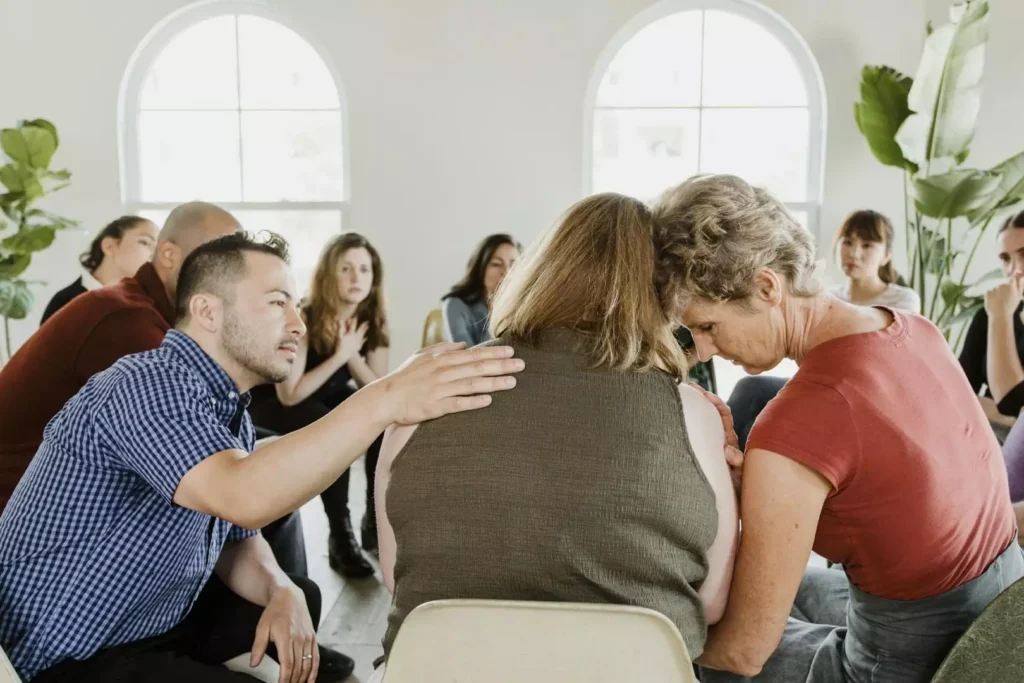When it comes to mental health and substance abuse recovery, one truth stands out: you don’t have to go through it alone. At Tangu Recovery + Wellness, we’ve seen firsthand how creating a strong support network can be the difference between feeling isolated and finding strength. Recovery is a journey, and like any journey, the people you surround yourself with can help guide, uplift, and sustain you along the way.
Why a Support Network Matters
Substance abuse and mental health challenges can often make individuals feel disconnected from the world around them. Loneliness, shame, and the fear of judgment can become overwhelming, making the path to healing seem insurmountable. But it’s important to remember that recovery isn’t meant to be traveled in solitude.
Building a support network provides the emotional scaffolding needed to face challenges head-on. The right community can offer:
•Accountability: People who check in on you and encourage you to stay committed to your recovery.
•Understanding: A shared sense of experience and empathy that comes from others who have faced similar struggles.
•Motivation: Encouragement to keep going, even on the hardest days.
•Perspective: Supporters can help you see beyond your current challenges and remind you of the progress you’ve made.
Who Should Be in Your Support Network?
A healthy support network consists of individuals who understand your journey and are committed to helping you succeed. This could include:
1.Family and Friends: Often, those closest to us want to help but may not know how. By including loved ones in your recovery, you give them the tools to support you in meaningful ways. Open conversations, family therapy, and education on addiction or mental health can strengthen these bonds.
2.Mental Health Professionals: Counselors, therapists, and addiction specialists are crucial members of your network. Their professional guidance helps keep you grounded, focused, and equipped with the strategies needed for long-term success.
3.Peers in Recovery: Whether through support groups like AA/NA, group therapy, or community outreach programs, connecting with others who are walking the same path is invaluable. These peers can share their personal experiences, offer advice, and help you feel less isolated in your recovery.
4.Sober/Recovery Coaches: For some, having a dedicated mentor or coach can make a huge difference. These individuals often have lived experience in recovery and can offer one-on-one support and encouragement.
5.Support Groups: Group therapy or peer support meetings offer a safe space to connect with others who understand your challenges. These groups can become a source of friendship, insight, and accountability throughout your recovery journey.
How to Build and Strengthen Your Network
While creating a support network may feel daunting, taking small steps can help:
•Start with Open Communication: Be honest with your loved ones about your needs, struggles, and goals. Let them know how they can best support you during this time.
•Join a Group: Whether it’s an in-person or online support group, finding a community of people who are also in recovery can provide you with a sense of belonging. These spaces are designed to offer encouragement and shared experience.
•Set Boundaries: Not everyone will understand your recovery process, and that’s okay. It’s important to set boundaries with people who may negatively impact your mental health or sobriety.
•Seek Professional Support: A therapist or counselor can help you navigate the complexities of recovery and provide strategies to strengthen your relationships. They can also help you identify and connect with appropriate support groups.
•Stay Connected: Recovery is a lifelong journey, and maintaining regular contact with your support network is key. This might involve weekly therapy sessions, attending recovery meetings, or scheduling regular check-ins with loved ones.
Your Support Network: A Lifeline for Every Stage of Recovery
At Tangu, we understand the importance of creating and maintaining a robust support network. We encourage our clients to engage with family, friends, and peers throughout their recovery process and beyond. Whether through group therapy, aftercare programs, or alumni networks, our facility offers a variety of ways to foster meaningful connections that last.
Recovery can be challenging, but with the right people by your side, it becomes more manageable. Remember, you don’t have to do this alone. Together, we can build a support system that empowers you to reclaim your life and move toward a healthier, brighter future.



